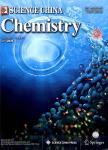Self-assisted stereospecific polymerization of unmasked polar 4-methylthio-1-butene
Self-assisted stereospecific polymerization of unmasked polar 4-methylthio-1-butene作者机构:College of Chemistry and Environmental Science Hebei University State Key Laboratory of Polymer Physics and Chemistry Changchun Institute of Applied Chemistry Chinese Academy of Sciences
出 版 物:《Science China Chemistry》 (中国科学(化学英文版))
年 卷 期:2019年第62卷第6期
页 面:761-766页
核心收录:
基 金:supported by the National Natural Science Foundation of China (21674108, 21634007, 21774118) the Science and Technology Development Project of Jilin Province (20190201067JC)
主 题:self-assisted polymerization stereoselectivity polar α-olefin rare-earth metal catalyst functionalized poly(1-butene)
摘 要:Stereospecific polymerization of polar olefins has always been an attractive but challenging project because the Lewis basic polar groups of monomers are usually poisonous to the Lewis acidic metal centers of the catalysts. In this contribution,thiophene-fused cyclopentadienyl scandium complexes 1-3 were successfully synthesized. Combined with alkylaluminium and organoborate, these complexes showed extremely low activity and no selectivity for 1-hexene polymerization. Surprisingly,highly stereo-selective coordination polymerization of unprotected polar 4-methylthio-1-butene has been achieved in high activity for the first time under the same polymerization conditions. High-molecular-weight(M_n=110×10~3) and perfectly syndiotactic(rrrr99%) poly(4-methylthio-1-butene)(P(MTB)) was afforded. Thus the methylthio-group-assisted mechanism that the unmasked methylthio group promoted the polymerization through σ-π chelation to the active scandium center together with the vinyl group was proposed. Moreover, the methylsulfonyl functionalized syndiotactic poly(1-butene) was also easily prepared by the oxidation of P(MTB). These results provided a new route for the synthesis of functionalized stereo-regular polyolefins.



